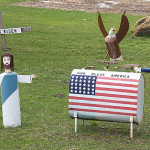We run our website the way we wished the whole internet worked: we provide high quality original content with no ads. We are funded solely by your direct support. Please consider supporting this project.

The Politics of Demonization
Jonathan Martin posted a blog this week that we wanted to share called the politics of demonization (demonic talk on immigration, & other things). Have you noticed the hateful ways that we characterize the “other” in public discourse? Jonathan suspects (and we agree) that there’s a powerful force driving this tendency in all of us. As he puts it “In the same way that love is not just something that God does, love is what God is; accusation is not what Satan does–it is what Satan is.”
Have you been falling for this trick of the enemy? Have you found yourself demonizing others?
We want to encourage you to read the entire piece by clicking on the link above, but here’s a portion of it we wanted to share here. And remember, if it has flesh and blood, it’s not the real enemy.
No wonder our rhetoric gets more and more forceful, the guiltier we feel about our own inability to affect positive change in the world. No wonder the language is so quickly inflated, when we find someone to crucify for our sins. We carry a profound amount of guilt, and the corporate exorcism that happens in the demonization of the other in our politics has real religious zeal, intoxicating moral energy behind it. The fact that it is fundamentally immoral energy doesn’t diminish its raw power. It’s a powerful thing to cleanse yourself on a Muslim, or a fundamentalist, a liberal, a conservative, a homosexual, an immigrant. It feels like it sanctifies us, even while it damns us. It is a powerful force in an individual, but much more so in a group or political party. Us vs. them, good guys vs. bad guys, white hats vs. black hats–it’s the collective madness that, when unleashed in a room turns a crowd into a mob. It’s the force of darkness that makes the people who a week prior cried “Hosanna” while Jesus walked one street, cry out “crucify him” a week later, as he walked down another.
Image by h.koppdelaney via Flickr.
Category: General
Tags: Hatred, Jonathan Martin, Politics, Satan
Related Reading

Who Rules Governments? God or Satan? Part 2
In the previous post, I raised the question of how we reconcile the fact that the Bible depicts both God and Satan as the ruler of nations, and I discussed some classical ways this has been understood. In this post I want to offer a cross-centered approach to this classical conundrum that provides us with…

A Brief History of Political Power and the Church
The history of the church has been largely one of believers refusing to trust the way of the crucified Jesus and instead giving in to the very temptation he resisted. It’s the history of an institution that has frequently traded its holy and distinct mission for what it thought was a good mission. It is…

Why is America Becoming More Politically Divided?
I watched a 20/20 special the other night on politics in America. The show explored the “growing political divide” in our country. Here’s some of the information found in this program. * Since the early 70’s Americans have become increasing polarized in their political views. Communities that once were pretty evenly split politically are now…

Podcast: Is Pledging Allegiance to the Flag a Big Deal?
Greg discusses allegiances and pledges. http://traffic.libsyn.com/askgregboyd/Episode_0442.mp3

What do you think of the left wing Christians who are calling on Christians to stand up for “biblical justice”?
Yes, we’ve been hearing a lot of this recently, especially from more “progressive” (left-tending) Christians calling on people to vote “God’s politics” and stand up for “biblical justice.” On the one hand, I along with everyone else applaud such rhetoric, for what Bible-believing Christian in their right mind would take a stand against “biblical justice”?…

God and Our Political Platforms
Rachel Held Evans posted a blog today on the stir created when Democrats booed the passing of “an amendment to the party platform reinstating language that identified Jerusalem as the rightful capital of Israel and that referred to people’s “God-given potential” in its preamble.” Of course this fed into the belief that if you’re a…
